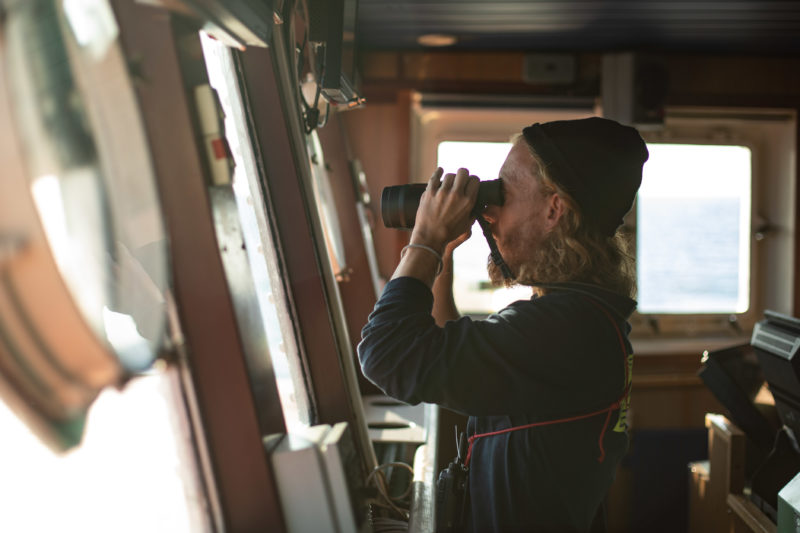David, Care Coordinator onboard Humanity 1

David is joining the upcoming mission of SOS Humanity as Care Coordinator. In this role, he leads a team of seven volunteers responsible for the protection, care, and general wellbeing of the people we rescue from distress at sea.
In addition to providing medical as well as psychological care and distributing food, this includes referring people with particularly high protection needs, such as unaccompanied minors, to partner organisations on land; e.g. the Red Cross or UNHCR.
Just before we return to the central Mediterranean to rescue people from drowning, we spoke to David about his work and the particular challenges associated with non-governmental search and rescue.
What are the most important measures taken onboard Humanity to take care of and protect survivors?
Transparent communication and treating people respectfully are particularly important. A good instrument for this is the daily morning meeting with the survivors on board. There we give them an overview of the daily routine, but also of further operational plans and possible developments regarding the assignment of a place of safety. We also give them the opportunity to ask questions and to share their opinions or thoughts. We speak with them honestly and on an equal footing: this is the basis for any further care on board.
From your point of view as Care Coordinator, what are the biggest challenges in providing the best possible protection and care for the people we rescue on board?
What is most challenging in the current situation is the political environment, which makes it extremely difficult to plan our work in advance, as the location of a port of safety and time it takes to be assigned are unpredictable. Furthermore, with limited medical and psychological resources and space on board, we can only take care of people’s basic needs.
For certain illnesses that require more advanced treatment, we may reach the limits of our capabilities. The unpredictable weather can also become a challenge. A large proportion of people spend their time with us on deck, where they eat, sleep, and occupy themselves during the day. Wet and cold conditions can worsen people’s condition and seasickness can weaken them further.
You have already mentioned the allocation of distant ports. What consequences can this new practice have for people rescued from distress at sea?
There is a reason why, under maritime law, a rescue is not complete until a place of safety has been assigned. As long as survivors remain on board a ship, they are in an extreme situation that lasts until they are all able to go ashore safely.
The reason for this is that there are limited space and resources on board. The longer they stay on board, the greater the danger that their medical condition, but also their general psychological situation, will destabilise. A long voyage to a distant port exposes people to unnecessary risks and a high level of stress.
Are there any political demands that you would make based on your work as Care Coordinator?
First and foremost, existing human rights must be respected. Everyone has a right to life, to protection and also to apply for asylum. Without legal routes for refugees and migrants, none of these rights can be guaranteed.


